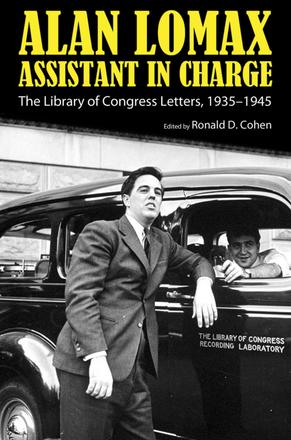
Alan Lomax, Assistant in Charge
The Library of Congress Letters, 1935-1945
Collected correspondence from arguably the most important folklorist of the twentieth century
Description
Alan Lomax (1915-2002) began working for the Archive of American Folk Song at the Library of Congress in 1936, first as a special and temporary assistant, then as the permanent Assistant in Charge, starting in June 1937, until he left in late 1942. He recorded such important musicians as Woody Guthrie, Muddy Waters, Aunt Molly Jackson, and Jelly Roll Morton. A reading and examination of his letters from 1935 to 1945 reveal someone who led an extremely complex, fascinating, and creative life, mostly as a public employee.
While Lomax is noted for his field recordings, these collected letters, many signed "Alan Lomax, Assistant in Charge," are a trove of information until now available only at the Library of Congress. They make it clear that Lomax was very interested in the commercial hillbilly, race, and even popular recordings of the 1920s and after. These letters serve as a way of understanding Lomax's public and private life during some of his most productive and significant years. Lomax was one of the most stimulating and influential cultural workers of the twentieth century. Here he speaks for himself through his voluminous correspondence.
Reviews
"Ronald D. Cohen has performed an invaluable service in gathering together Alan Lomax's letters, from many scattered sources and under difficult circumstances, covering Lomax's most active period at the Library of Congress, from 1935 to 1945. Alan Lomax, following in the footsteps of his father, pioneer folksong collector John Lomax, became the preeminent authority on the indigenous music of the world. From the time he was seventeen until his death in 2002 at age eighty-seven, he was indefatigable in recording and documenting the folksongs, folk tales, and folk customs of both North America and Western Europe. Like his father, he was a prodigious letter-writer, and his correspondence provides a detailed and most interesting account of his day-to-day activity. "
- Nolan Porterfield, author of Last Cavalier: The Life and Times of John A. Lomax